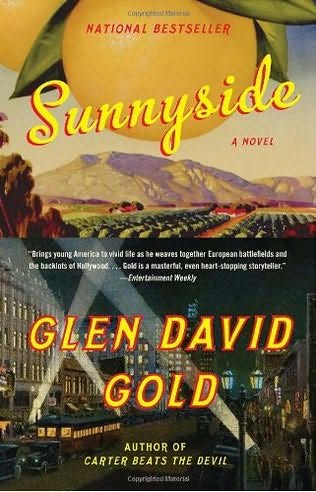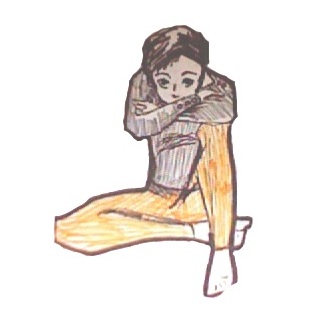




I was a dick about my Summer Reading Reviews that I planned. I'm sorry, blog. Here's what I've read and finished since my last update (in no particular order):
Alice Sebold, The Lovely Bones
Sebold's debut novel, which a few years ago was the IT book, stayed far from my radar for a long while. The reason is this: when I was in high school, I saw at least six girls do terrible dramatic re-enactments of the book's first chapter, which describes the rape and murder of the 14-year old narrator, Susie Salmon. Rape is a tough thing to read and to watch, not because it's a horrifying subject (it always is), but because sometimes it's just so poorly done. Sebold, to her credit, writes it with enough balance between description and discretion to not make me throw the book across the room. The rest of the novel deals with Susie's friends and family attempting to cope with the aftermath of her murder; their attempts to find her killer, her family falling apart, and Susie's adjustment to her new heaven, where she watches helplessly, and often joyfully, time pass for those she left behind. Sebold's greatest gift in this novel is a damn good narrative voice. Her Susie is sweet and tragic, loving and regretful, and it is her feelings towards her family that carries the greatest feeling, more so than what her family actually experiences. I was disappointed in the secondary characters in the novel, the rest of the Salmon family and a few more of Susie's friends, as well as her killer; they are convincing but never seem to flesh out or develop; the third act of the book was almost boring for me. Once again, it seems, I picked up the novel that everyone and their mother raved about, and was disappointed. Damn my Bachelor's degree.
Mikhail Bulgakov, The Master and Margarita
Now THIS is more like it! Check it out: in Soviet Moscow, the Devil and his companions (a naked girl, a hunchback, a man in a checkered suit and a giant talking cat) pay a visit to wreak a little havok. Bulgakov's take on the Faustus myth is darkly funny and compellingly intelligent; not for the weak of mind but oh so worth it. With reckless abandon, the Devil causes a fair amount of death and destruction so that he might throw a good party, and saves the love of the titular Master and Margarita, an impovershed writer whose manuscript on the religious figure of Pontius Pilate has been destroyed, and the woman who willingly gives her soul to be with him. The novel not only deals with religion in a unique and arguably perfect way, but criticizes a society that refuses to accept the existence of either God or the Devil. Oh, and the cat's name is Behemoth, and he loves shooting things.
Ralph Ellison, Invisible Man
I feel like I can't write that much about this novel, only because it would be too difficult. Invisible Man is dense, no doubt, but that does not mean that it is impossible. Ellison has crafted a sort of African-American Ulysses, a voyage from the impoverished South to the well-to-do yet hypocritical University and finally to the bustling world of 1920s-1930s Harlem. Ellison's nameless narrator seeks his identity through them all, finally settling on being, more or less, the titular Invisible Man. Though a strong and powerful criticism of American racism, Ellison's prose wanders so often into the experimental that one forgets to think in terms of political statements and instead delves into the allegorical factors surrounding race and the way we see each other, the hypocrisy inherent in all people, and the overwhelming and never answered question of the human condition. If there really is a greatest American Novel ever written, this must be close to #1.
H.P. Lovecraft, At The Mountains of Madness
Lovecraft's weird fiction has avoided me for some time, and finally I got around to it, picking up "The Call of Cthulu" as well as some other stories, one being his novel, At The Mountains of Madness. The story follows an Antarctic expedition that stumbles upon the ruins of an ancient inhuman civilization that inexplicably causes the deaths of several members of the crew. Lovecraft's gift is for horror, and unfortunately it does not shine here as it does in stories like "The Call of Cthulu" or "The Colour of Outer Space". Though the civilization that Lovecraft creates and describes is well-formed in the prose, the narrative delves too much into scientific musings pertaining to geological history or mathematical distance, and there are too many moments where Lovecraft tries to build suspense, but eventually is just tiring. How often can you almost describe something, and then say "but I am too afraid to speak of it!" We know you're going to. There's no way that you won't. Also, the novel is missing that Lovecraftian sense of doom, where mankind is unable to cope with the scale of the unknown universe, that nihilistic sensibility that really makes for the best sort of horror.
Glen David Gold, Sunnyside
Ah yes, Sunnyside. I loved Carter Beats the Devil, Gold's first novel, and his follow-up was about Charlie Chaplin and the beginnings of Hollywood, so you know I would be on board. Gold is far more ambitious with this novel, he does not only follow Charlie Chaplin, but others as well, notably two men who seem to have little to nothing to do with Hollywood at all. The stories all revolve around the First World War, in and out of the trenches. Gold's Chaplin is a man filled with both ambition and indecision, full of love and a good touch of self-pity. Chaplin's motivations are sometimes hard to figure, but I'm just along for the ride, and Gold's prose is practically sparkling. Be warned, though: just because it's about Charlie Chaplin doesn't mean that it's all fun and games. But anyone who's seen Chaplin's better films – The Kid, City Lights, Modern Times – knows that humor is to be found in tragic circumstances, in fact, it must be found in order to survive. Gold's novel, then, is much like life itself: sometimes funny, often tragic, but mostly beautiful and, really, always worth it.


No comments:
Post a Comment